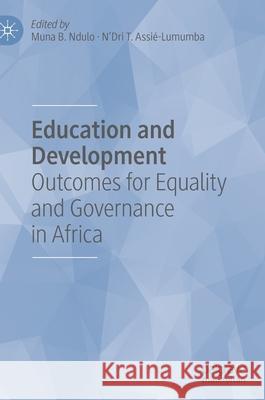Education and Development: Outcomes for Equality and Governance in Africa » książka
topmenu
Education and Development: Outcomes for Equality and Governance in Africa
ISBN-13: 9783030405656 / Angielski / Twarda / 2020 / 272 str.
Education and Development: Outcomes for Equality and Governance in Africa
ISBN-13: 9783030405656 / Angielski / Twarda / 2020 / 272 str.
cena 644,07
(netto: 613,40 VAT: 5%)
Najniższa cena z 30 dni: 616,85
(netto: 613,40 VAT: 5%)
Najniższa cena z 30 dni: 616,85
Termin realizacji zamówienia:
ok. 22 dni roboczych.
ok. 22 dni roboczych.
Darmowa dostawa!
Kategorie:
Kategorie BISAC:
Wydawca:
Palgrave MacMillan
Język:
Angielski
ISBN-13:
9783030405656
Rok wydania:
2020
Wydanie:
2020
Ilość stron:
272
Waga:
0.50 kg
Wymiary:
21.01 x 14.81 x 1.75
Oprawa:
Twarda
Wolumenów:
01
Dodatkowe informacje:
Wydanie ilustrowane











